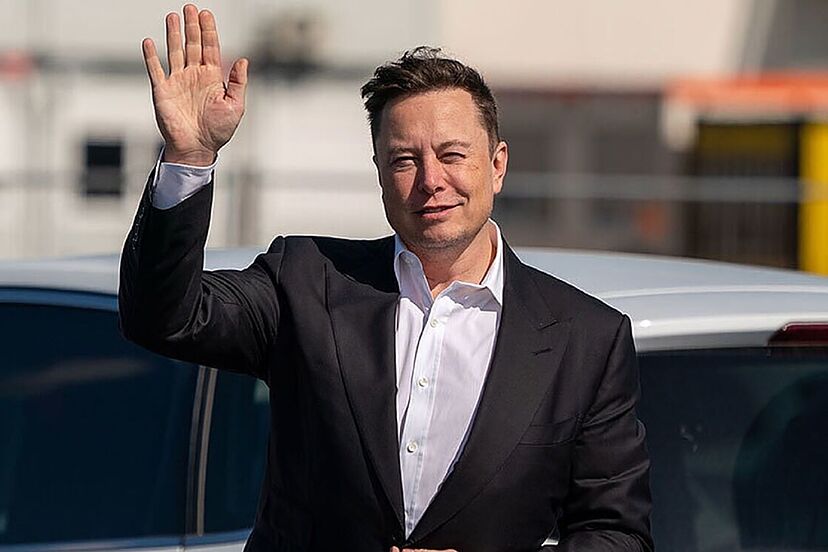A lawsuit filed earlier this week is shining a controversial spotlight on tech mogul Elon Musk, whose political involvement has escalated dramatically in recent years. Musk, who currently heads the Trump administration’s Department of Government Efficiency and has been instrumental in President Donald Trump’s 2024 re-election campaign, now faces legal trouble from an unexpected source — a grassroots-level canvasser.
The accusation? Failing to pay $20,000 in promised compensation.
The lawsuit, filed anonymously by a man living in the suburbs of Philadelphia, claims Musk and his pro-Trump super PAC, America PAC, failed to follow through on a significant payment deal tied to petition work carried out before the 2024 presidential election. The plaintiff, who chose to remain unnamed due to fears of retaliation, asserts that he dedicated weeks of his life gathering signatures, trusting the word and honor of Elon Musk — only to be left unpaid and ignored.
According to the complaint, Musk and America PAC promised to pay $100 to any registered voter in battleground states who signed a petition supporting free speech and gun rights. More significantly, they offered an additional $100 for every person that voter referred who also signed.
The financial incentives, coupled with Musk’s growing public presence as a political figure, motivated hundreds, if not thousands, of grassroots volunteers to hit the streets with clipboards in hand.
The plaintiff’s lawyer, Shannon Liss-Riordan, known for taking on high-profile corporate labor cases, emphasized that the heart of the lawsuit is about “keeping promises.” In her statement, she noted, “He was expecting to be able to pay his bills because of this promise. He was pounding the pavement during the campaign because Elon Musk asked him to. He believed in Elon Musk.”
The emotional weight of the statement is hard to miss. This was not just a job — it was a mission, backed by a powerful promise. The man claims to have been paid for some of his hourly canvassing work and a portion of the referrals.
But he contends that the $20,000 he is owed — based on the referrals he personally gathered — remains unpaid, despite multiple attempts to contact the PAC for resolution.
What’s more disturbing, according to the suit, is the complete lack of response. “He has made repeated attempts to contact the PAC, looking to receive the full payment,” the suit states, “but to no avail.” The silence, combined with the PAC’s previous promises and marketing efforts, has added a layer of betrayal to what began as a civic duty — a duty motivated not just by money, but by belief in a cause.
America PAC, for its part, is denying any wrongdoing. Spokesperson Andrew Romeo issued a statement asserting that the organization is committed to paying for “every legitimate petition signature,” and emphasized that “tens of millions” had already been paid to organizers across the country. He did not, however, directly confirm or deny the specific circumstances of this plaintiff.
“While we don’t yet know who this ‘John Doe’ plaintiff is and can’t speak to their specific circumstances,” Romeo said, “we can say that we are also committed to rooting out fraud and have the right to withhold payments to fraudsters.”
This bold assertion seems to suggest that America PAC might suspect the anonymous plaintiff of dishonesty, even though no specific evidence has yet been presented publicly to support that claim. It’s a potentially dangerous line to walk, especially when the stakes involve both public trust and legal liability.
The broader context of this lawsuit also cannot be ignored. Shortly after the 2024 election, reports surfaced that Elon Musk had spent approximately $200 million to support Donald Trump’s re-election campaign — a staggering amount, even in the realm of American politics.
That figure places Musk among the most influential private donors in modern campaign history and signals his complete transformation from tech billionaire to political powerbroker.Now, as the head of the Department of Government Efficiency, Musk has taken on a new kind of responsibility — one that may require more transparency and accountability than his business ventures ever did. While he’s used to navigating the unpredictable seas of private enterprise, the world of public service and government contracts demands a different level of oversight.The plaintiff’s situation underscores a fundamental question: What happens when everyday citizens take billionaires at their word and are left holding the bag? The answer may very well lie in the outcome of this lawsuit.
If the allegations are proven true, it could set a precedent for how super PACs, and by extension their powerful benefactors, are held accountable for their promises.
It also raises uncomfortable questions about campaign ethics. If volunteers and contractors are mobilized under the banner of patriotism and civic duty — but then cast aside when the job is done — what message does that send to future political operatives? What does it say about a movement’s integrity?
Furthermore, the optics of the case couldn’t be worse for Musk. At a time when he’s trying to reinvent himself as a national leader — one who values efficiency, effectiveness, and ethics in government — being dragged into court for failing to pay a citizen over a $20,000 canvassing job sends a message at odds with his public persona.
It may seem like a relatively small sum for a billionaire, but for the man who filed this lawsuit, it’s life-changing money — and the principle is even bigger.
There’s also a personal betrayal at play. The man believed in Musk. He didn’t just take a gig. He took a stand. He marched for a cause because someone he admired asked him to. That kind of loyalty, when met with silence, stings in a different way.
As this lawsuit unfolds, it will likely attract significant attention — not just from legal analysts, but from political commentators, activists, and perhaps even Musk’s own supporters. It may compel other unpaid or underpaid campaign workers to step forward. It may force America PAC to release more detailed records about its payouts.

And it may, ultimately, test Musk’s credibility not just as a businessman, but as a statesman.
For now, the case remains in the early stages. But its implications stretch far beyond one man and $20,000. At its core, this is about the promise of American democracy — and what happens when those who rally others in its name fail to honor their word.


